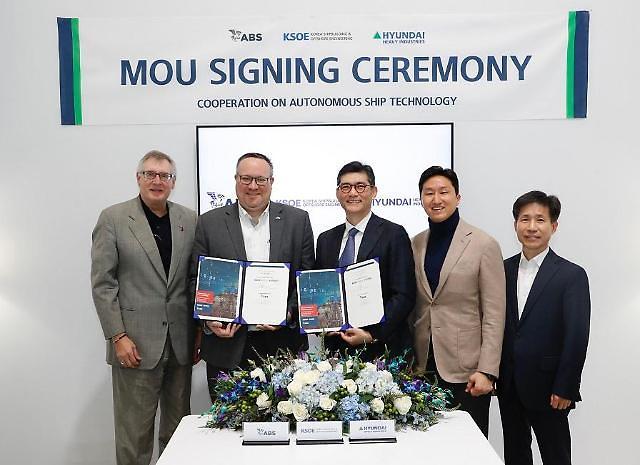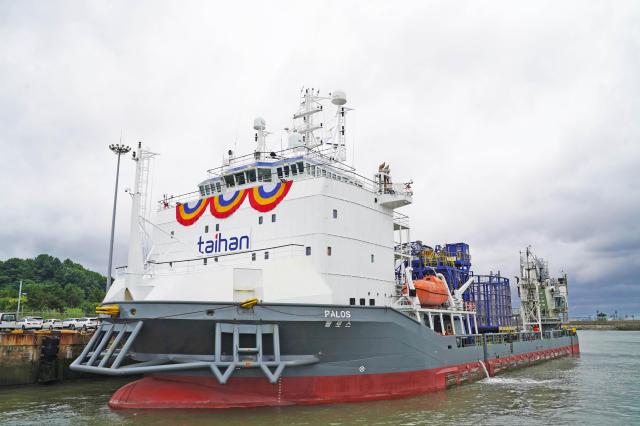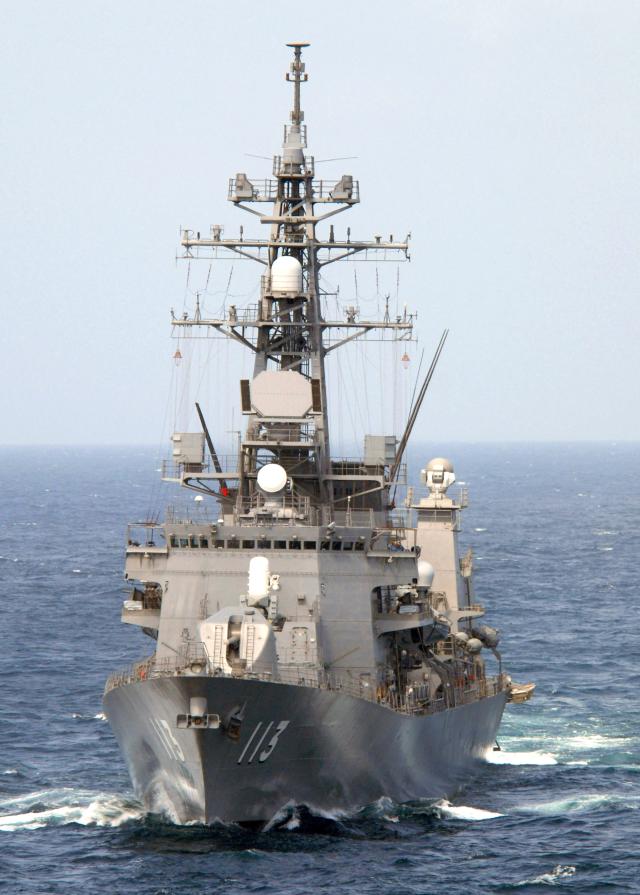
[Courtesy of KSOE]
LAS VEGAS -- Korea Shipbuilding & Offshore Engineering, the holding company of Hyundai shipbuilding group, signed a cooperation agreement with the American Bureau of Shipbuilding to jointly develop and demonstrate artificial intelligence-based autonomous “unmanned” commercial vessels.
Backed by the accelerated speed of AI-based smart vessel development, Avicus, the autonomous vessel development wing of HD Hyundai, the world’s top shipbuilder formerly known by the name of Hyundai Heavy Industries, successfully tested a self-driving ship to leave Freeport located on the Gulf of Mexico to travel through the Panama Canal and across the Pacific to arrive at a liquefied natural gas terminal in Boryeong some 140 kilometers (86 miles) south of Seoul in June 2022.
The smart vessel traveled some 10,000 kilometers, which was about half the distance of the total travel distance of some 20,000 kilometers, only using its autonomous system. Avicus’ Integrated Smartship Solution can plan optimized sea routes based on the weather and the height of waves as well as other marine traffic. The smart ship that traveled across the Pacific showed about seven percent improved fuel efficiency and about five percent decreased emission of greenhouse gases.
Korea Shipbuilding & Offshore Engineering (KSOE) said during a press conference held at the Consumer Electronics Show held at Las Vegas Convention Center on January 7 that the company signed a cooperation agreement with the American Bureau of Shipbuilding (ABS) to jointly develop and demonstrate HiCBM and HiCAMS applications that use AI to diagnose the condition of various mechanical equipment and manage situations like fire without human intervention.
“The cooperation with ABS will become a big support for HD Hyundai to become a leader in the development and commercialization of autonomous vessel technologies,” KSOE’s future technology research center head Kim Sung-joon said.
Copyright ⓒ Aju Press All rights reserved.




